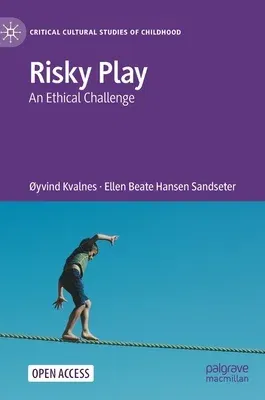Øyvind Kvalnes
(Author)Risky Play: An Ethical Challenge (2023)Hardcover - 2023, 11 February 2023

Qty
1
Turbo
Ships in 2 - 3 days
In Stock
Free Delivery
Cash on Delivery
15 Days
Free Returns
Secure Checkout

Part of Series
Critical Cultural Studies of Childhood
Print Length
113 pages
Language
English
Publisher
Palgrave MacMillan
Date Published
11 Feb 2023
ISBN-10
3031255518
ISBN-13
9783031255519
Description
Product Details
Book Edition:
2023
Book Format:
Hardcover
Country of Origin:
NL
Date Published:
11 February 2023
Dimensions:
21.01 x
14.81 x
0.79 cm
ISBN-10:
3031255518
ISBN-13:
9783031255519
Language:
English
Location:
Cham
Pages:
113
Publisher:
Weight:
299.37 gm